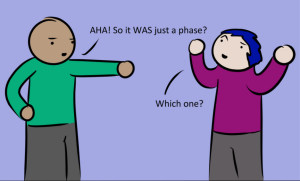In April 2016 the release of information about an eleven and a half million document leak known as the Panama Papers shook the world.
These documents detail how a law firm based in Panama, Mossack Fonseca, established shell corporations on behalf of some of the most powerful people in the world.
Text on screen: The Panama Papers: An Introduction. “The Panama Papers is a global investigation into the sprawling, secretive industry of offshore that the world’s rich and powerful use to hide assets and skirt rules by setting up front companies in far-flung jurisdictions.”
Those companies were used to avoid taxation, circumvent sanctions, and launder money, so how do they do that? What exactly is a shell company?
Well, as it turns out these companies are not actually illegal. A shell company is simply an organization that doesn’t produce anything or employ anyone and exists solely on paper. Most of the time shell companies don’t even have an office or phone number. Often the owner of the company is kept hidden or made anonymous. Their purpose is to serve as a front for another business or individual, which can then be used for legal or illegal purposes.
Legal uses can include creating a shell company to serve as the basis for a startup which doesn’t have any assets or business yet, but still has to exist as a legal entity. Alternately, shell companies can be used to mask business deals on behalf of companies that may not want to be seen doing business together in public. This is legal, although arguably dishonest.
But shell companies are much more renowned for operating illegally.
One such use is for money laundering. Since shell companies do not trace back to their owners, those who need their money laundered can wire it into accounts held by their shell company. This money is then claimed as business income, often in countries like Panama with low or non existent tax rates. This laundered money ends up back in the owners pocket without it being taxed or anyone knowing where it came from or where it went.
Even legally obtained funds can be funneled through a shell corporation to avoid taxes. The way this work is that companies invest a portion of their profit into off shore shell companies thus claiming it as an investment and not profit.
Since only profitable income is taxed, corporations are able to keep their money overseas tax-free. It is estimated that more than two trillion dollars of profit is kept in offshore accounts like these.
These secretive accounts can also be used to spend money illegally, especially to avoid international sanctions.
The Panama Papers have thus far revealed that the Syrian government was able to use shell companies to bypass sanctions and purchase fuel for military purposes in the Syrian civil war. While shell companies are not necessarily illegal, what many do with them is illegal.
Within just a few days of the Panama Papers release, the Icelandic Prime Minister was forced to step down after evidence of his impropriety surfaced.
It is doubtless that other world leaders who tried to use shell companies to hide their actions will soon face a similar fate.
So what exactly is in the Panama Papers? Find out by watching this video of what we know so far and who has been involved.




















